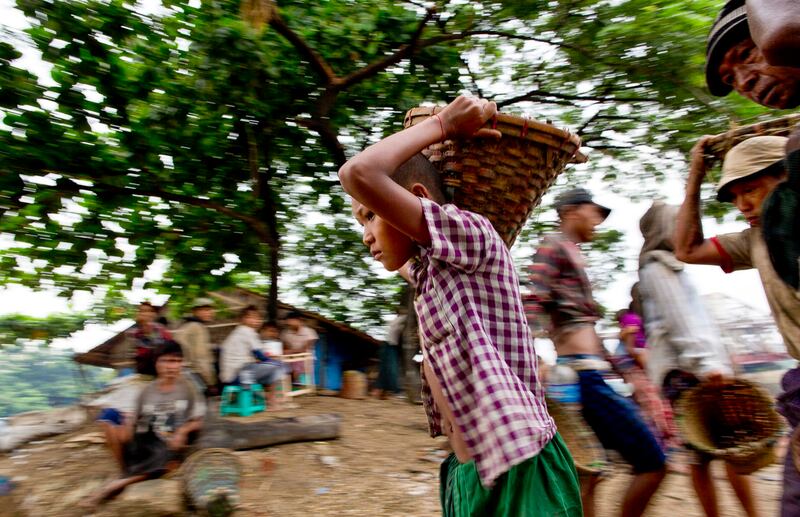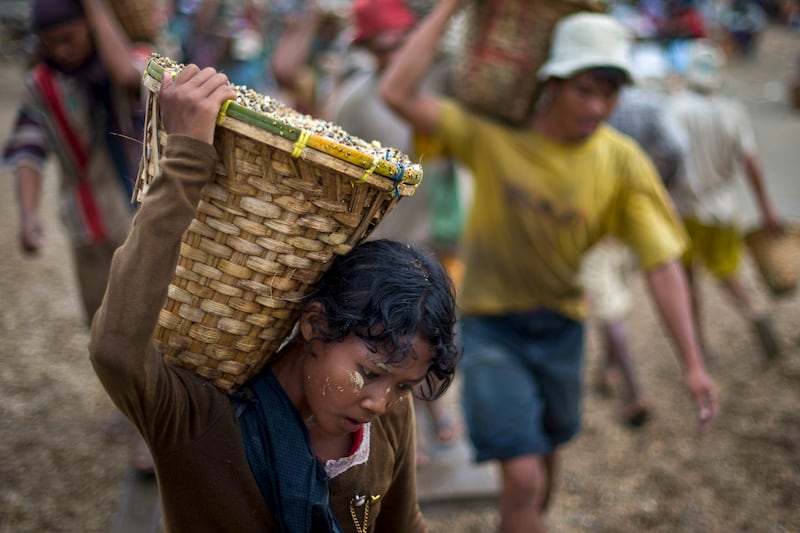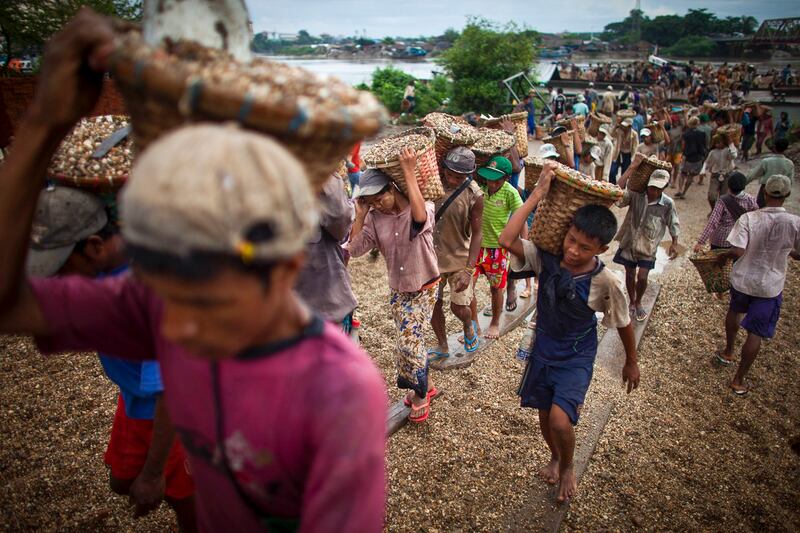Myanmar’s junta-ordered military draft has exacerbated a shortage of workers caused by the country’s civil war, and the gap is being filled by minors who are vulnerable to labor rights violations, experts and rights groups said Friday.
The growth in child labor is an underreported impact of the junta's People's Military Service Law, enacted in February as part of a bid to shore up its forces amid heavy losses to various ethnic armies and rebel militias since its 2021 coup d'etat.
Under the law, men between the ages of 18 and 35 and women between 18 and 27 can be drafted to serve in the armed forces for two years.

Thousands of young men have been recruited in the first three rounds of the draft, while thousands more draft-dodgers have fled into rebel-controlled territory and abroad to avoid service.
Last month, the International Labor Organization, or ILO, published a report that documented "an increase in child labor levels partly driven, amongst other factors, by parents preferring their children to work as means to avoid conscription."
RELATED STORIES
[ Junta deploys first round of military recruits to Myanmar’s frontlinesOpens in new window ]
[ ‘Demographic dividend’ a long-term casualty of Myanmar’s civil warOpens in new window ]
[ Myanmar woman struggles after junta conscripts her husbandOpens in new window ]
While the ILO was unable to provide exact figures for the increase, it said its findings squared with an earlier report which found that “child labor rates in conflict-affected countries are 77% higher than global averages.”
RFA Burmese spoke with labor rights groups who acknowledged the difficulty in obtaining precise data, but confirmed that child labor is on the rise in Myanmar in 2024 compared to previous years – in part due to the absence of workers who have been drafted or fled to avoid service.
They said that child labor is prevalent across various sectors, including garment production, agriculture, food services, domestic work, hazardous construction, street vending, and begging.
At greater risk of exploitation
Ma Ei, the co-secretary of the Federation of General Workers Myanmar, said that in a country where workers have limited rights protections, children are particularly vulnerable to exploitation.
"We have documented numerous cases where child laborers face issues such as unpaid overtime, termination after completing critical orders, or dismissal for refusing overtime," he said.
Despite widespread violations, many child laborers are afraid to report abuses, fearing retaliation such as job loss.

Labor union leader Myo Myo Aye told RFA that labor violations are often disregarded in smaller factories, where minors often look for work using identity cards that belong to older relatives or friends.
"Eligible workers would avoid such factories due to low wages, lengthy working hours, and lack of benefits that workers rightfully deserve,” she said. “Child laborers not only lose their rights but also endure exploitation and are denied the same rights as other workers.”
But families facing poverty, exacerbated by the junta’s mismanagement of the economy and foreign investors fleeing political instability, often have little choice but to send their children to work.
A June 24 report by the United Nations Development Program found that 75% of Myanmar's population – or 42 million people – live in poverty.
Trading education for work
RFA spoke with a young woman from western Rakhine state who said that after the Arakan Army ended a ceasefire agreement with the military in November, she relocated to Myanmar’s largest city Yangon to escape the conflict and continue her studies.
“However, upon arriving, I lacked the funds to pursue my education,” said the young woman, who gave the pseudonym Thandar due to security concerns. “Consequently, I began working in factories instead of going to school. Often, I had to work late into the night, doing overtime without receiving any additional pay."
Thandar said she dropped out of school at the age of 14 to support her family and has been working in Yangon's garment factories using someone else's identification card.

Experts RFA spoke with said that while child labor existed in Myanmar during civilian rule, it had “significantly increased” under current conditions.
Attempts by RFA to contact the permanent secretariat of the junta's Ministry of Labor to inquire about efforts to combat child labor went unanswered Friday.
On June 8, 2020, Myanmar ratified the International Labor Organization's minimum working age provision, prohibiting those under the age of 14 from employment or work in any occupation, except for light work and artistic performances, and banning hazardous types of activities for young persons under 18.
It ratified a foundational agreement concerning the participation of children in armed conflict on Sept. 27, 2019.
Translated by Kalyar Lwin. Edited by Joshua Lipes and Malcolm Foster.
